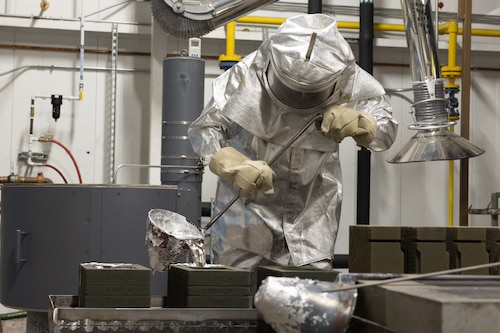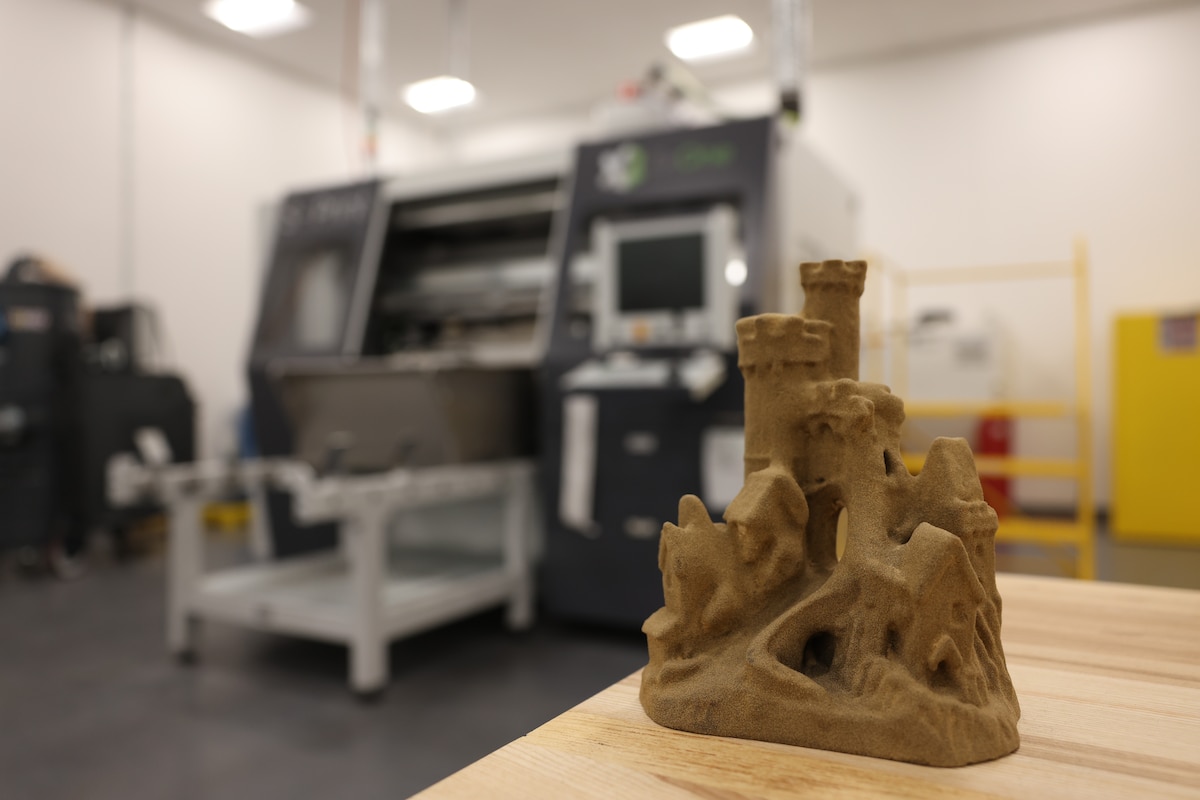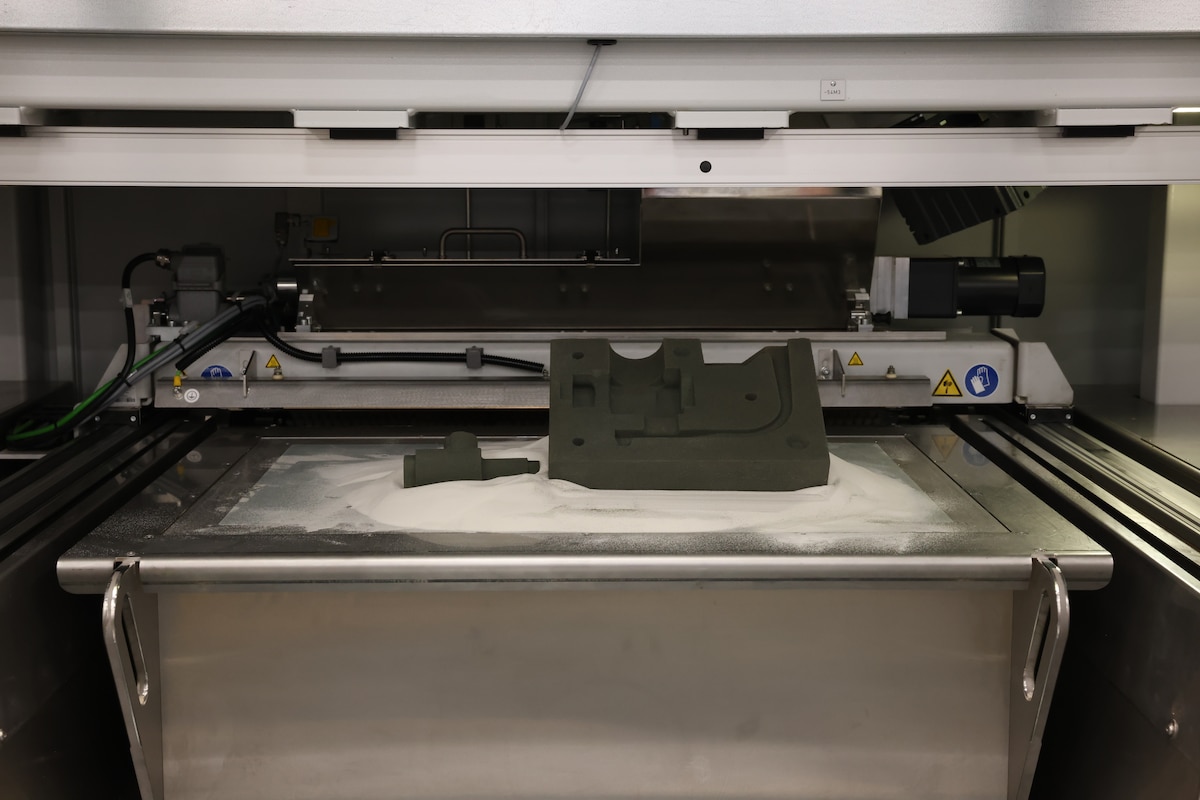The 76th Commodities Maintenance Group and Reverse Engineering and Critical Tooling, or REACT, Lab at Tinker Air Force Base have added the capability to sand cast aluminum parts in-house.
By 3D printing casting molds from sand, aluminum parts weighing up to 120 pounds can be cast in its newly launched foundry. The 76th CMXG is able to produce up to Grade B standards and is perfecting their process to soon have capability to produce Grade A castings, meaning the casting is nearly flawless.
"Designing molds and pouring parts in-house allows us to keep our aircraft flying," said Michael Thompson, 76th CMXG foundry process engineer. "We cannot let the lack of a $100 casting ground a $50 million aircraft."
The new technique adds one more tool to address the difficulty in sourcing parts for legacy aircraft. Parts that may not have needed replacement earlier in an aircraft's life are now reaching their end, with fewer suppliers bidding on contract requests for proposal.
In the new foundry, parts are created by first 3D printing a mold from sand mixed with a binding agent. The mold resembles foam used by florists but denser. Aluminum ingots are melted down in the foundry, poured into the mold and allowed to cool. The casting can then be milled down to create a finished product.
"Three-dimensional sand printing is yet another technology that the REACT Lab has added to their manufacturing base in the last two years," said Ryan Fowler, REACT materials engineer. "We are working towards getting metal printed components certified as airworthy, but since it's a new technology, it takes quite a bit more effort. Since these components were originally cast, REACT and 76th CMXG just need to go through a Source Approval Request."
The 76th CMXG's capabilities will grow over the next three years as new techniques and equipment are added as part of their foundry expansion plan. Some of the current producible parts include bearing housings, fuel fittings and other parts that are used in propulsion, avionics and control systems.
Future investments include a new oven for pre-heating the sand molds before pouring for improving process control and enabling Grade A quality castings. A new investment casting cell will enable automated shell casting, which uses robotics to create wax models to produce ceramic casting molds. This process allows for more complex geometries, near-net-shapes, i.e., a part very near the finished product and extremely smooth castings.
"Shell castings are more precise and complex than sand castings and are used in far more places; as in fuel pumps, control linkages, fans and places where air and fluids need to flow," Thompson said.
Although none of the casting products are on aircraft yet, Thompson expects the parts to be flying next year, pending airworthiness tests. The 76th CMXG is working the preliminary activities to achieve National Aerospace and Defense Contractors Accreditation Program certification, known as NADCAP, for the foundry and expects to be certified in June 2024 with the renewal of the group's AS9110 certification.
The mission of the 76th CMXG is to be the premier aerospace maintenance operation in the United States Air Force. It provides flexible and responsive manufacture and repair of aerospace components for the warfighter.










